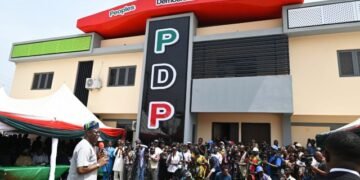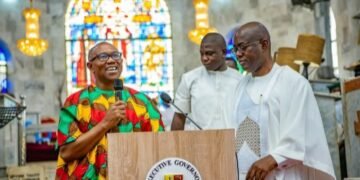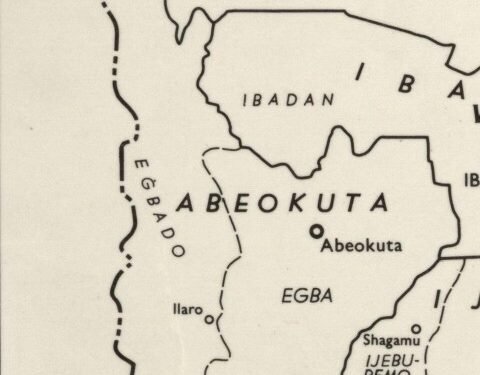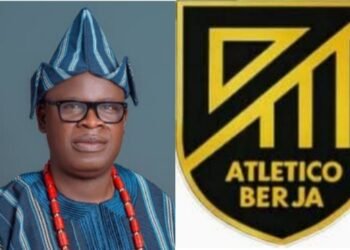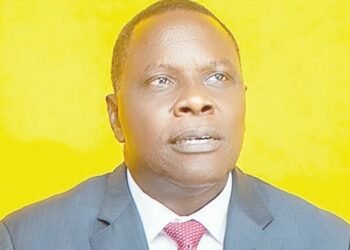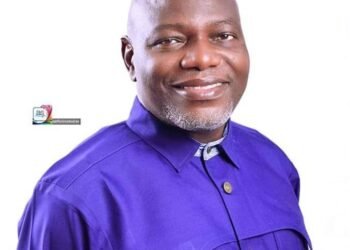“Why is Egba or Abeokuta State not proposed or listed? Egbaland is a vast social and political territory that covers most of the present Ogun and Lagos States.”
In recent years, calls have gone out for the creation of more states in Nigeria. However, before now, the question of who would create them has been an obstacle because in a democracy, making such a call is not only a daunting task, but it is also a route that cannot be clearly defined.
Soldiers can easily make such decisions because, in military rule, there are no constitutional procedures or stumbling to state creation. The Commander-in-Chief could simply issue a decree and request his supreme council to give it backing, and voila, states are created! However, it would require constitutional mechanisms and laws to do the same in democratic rule.
The military government in Nigeria dismantled the colonial structure in 1967 when the first set of states were created, thus ending the regional system that existed since 1960.
In subsequent years, one state creation exercise followed another, and, from 12 to 19 states in 1986, 21 states in 1987 and from 30 to 36 states between 1991 and 1996, with a Federal Capital Territory (FCT) in Abuja, Nigeria expanded significantly.
The military government argued that creating more states was good for development, as it would bring the government nearer to the people. The grassroots would feel the impact of national programs, and neglected places would find some recognition and upliftment. The second argument was that the country was too big to have just three regions or 12 states and that even 19 and 21 states were not enough to engender development.
The argument has expanded in recent times, with the point that the population was growing astronomically, from about 65 million in 1976 when 19 states were created to 230 million in 2024, and that having more states would cater to the yearning needs of the massive population.
The second point is that some states were too big and needed to shed some load. The Nigerian legislature, which champions this post-military state creation, has identified some states that were long overdue to birth new states and allow for growth and national development.
The Nigerian House of Representatives proposed the creation of 31 new states, to be carved out of the existing 36 states. If this works, Nigeria would have 67 states altogether.
The proposed states are distributed across the six geopolitical zones of Nigeria. The North-Central zone would have six new states, North-East four, North-West five, the South-East five, the South-South four, and the South-West seven.
These proposed states include Benue, Ala; Okun, Okura, and Confluence states; Amana State; Katagum State; Savannah State; Muri State from old Taraba State; New Kaduna State, Gurara State; Tiga from old Kano State; Kainji State from old Kebbi State; and Ghari State from old Kano State.
Other news states would be Etiti, and Adada State from Enugu State; Urashi and Orlu states; Ogoja State from old Cross River State; Warri State from old Delta State; Bori State from old Rivers State; and Obolo from old Rivers and Akwa Ibom States.
The remaining proposed new states are in the South-West. These include Toru-Ebe State from old Delta, Edo, and Ondo states; Ibadan State from old Oyo State; Lagoon State from old Lagos State; and Ijebu State from old Ogun State.
All of these new states look good. However, one state is missing- Egba or Abeokuta State. Why is Egba or Abeokuta State not proposed or listed? Egbaland is a vast social and political territory that covers most of the present Ogun and Lagos States.
Aside from the mainland Egba, which includes Abeokuta North, Abeokuta South, Ijero, Ayetoro, and Osiele, Egbaland extends to Odeda and Kila in the North-East, Itoro, Ifo, Sango, Agbado, Abule-Egba, Ilaro, and Owode in the South-West, eating deeply into Lagos State and Aworiland. Egba people also founded and dominate Ibafo and Mowe along the Lagos-Ibadan expressway.
If Ijebu State is going to be accommodating Remoland, then it means the new Ogun State would be just Egba, Egbado, and Awori people, which works fine because these other two groups have genealogical and historical connections with the Egba people.
But if the new Ogun State would include Remoland and Ijebu State would just stand alone as an Ijebu enclave, then there would have been some institutionalised imbalances favouring other groups ahead of massive Egbaland.
For centuries before colonialism, the Egba people were a sovereign nation and renowned for being one of the frontline Yoruba states in the old Yoruba Empire of Oyo. They were Oyo’s trusted allies as they served as the fortress of the empire in the west where troublesome Dahomeans were often rebelling against the overlordship of the Alaafin.
Egba had some of Eko under control as the Iyalode Efunroye Tinubu. While in Abeokuta, Efunroye Tinubu helped supply the city with munitions during its victorious war against the Kingdom of Dahomey, thus earning her the chieftaincy title of the Iyalode of the Egbas. She died in Abeokuta in 1887.
Ijebu has a great history, but while the Egba were building a formidable army and kingdom tested in wars against hostile Dahomey, the Ijebus were just comfortable in their abode on the eastern flank. However, the Egba and Ijebu shared a common origin, but they maintained their own identities and did not have a relationship of subordination.
In terms of war, however, the Egba were tested and superior. Thus, the Egba expanded farther and more widely, even swamping some Ijebu-speaking territories close to Remoland.
I have lived in Ibadan for most of my years. Born and raised in Ibadan by my parents who were from Abeokuta and Ijebu Igbo, I have had a taste of the three great parts of Yorubaland. Ibadan is massive and remains one of the largest cities in Africa. It deserves a state of its own.
There is nothing wrong with Ijebu having its own distinct state. However, if Ijebuland must become a state, then Egbaland deserves more because it is more massive with more people, although Ijebuland is said to have over two million people compared to Egbaland’s 375, 000. But this is because most territories of Egbaland including Ibafo, Mowe, Agbado, Abule-Egba, Sango, Owode, Itori, Ifo, Ilaro, and other large cities are embedded in Lagos, instead of where they truly belong- Egbaland. If the population of these places should be included in Egbaland’s demographics, Lagos will shrink in size and Egbaland would have more than six million people.
However, if a new Ogun would encompass the present cities and settlements in Egbaland, including Egbado, Awori, and some important towns in Lagos that have Egba people, then it would work just fine.
•Mrs. Folarin writes from Ibadan.

